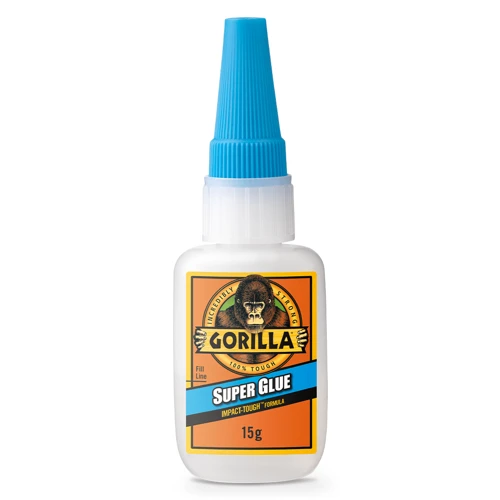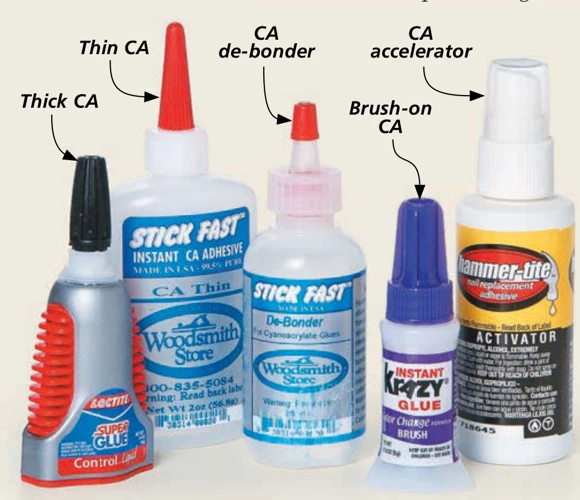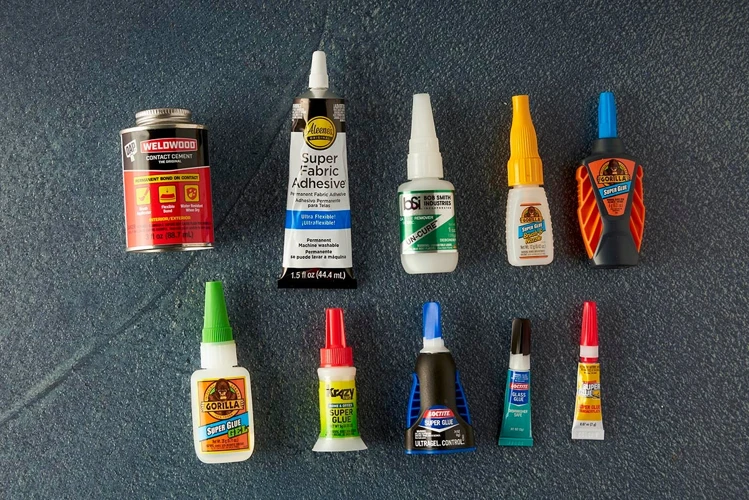When it comes to assembling or repairing items, the strength of the adhesive you choose can be the difference between a lasting bond and a fragile connection. Strong adhesives have revolutionized the way we fix, construct, and create, offering durability and reliability where it matters most. In this post, we’ll explore what constitutes a strong adhesive, its various applications, and how to select the best glue for your needs.
The Science of Glue Strength
Understanding the science behind glue strength is critical to appreciating what makes an adhesive effective. The potency of a bonding agent lies in its ability to create a chemical or mechanical bond, resisting forces that may cause separation. Factors like cohesive and adhesive strength contribute to the overall performance of the product.
Industrial Glue vs. Household Adhesives
Industrial glue and household adhesives serve different purposes and exhibit varying degrees of potency. Industrial glue is formulated to meet rigorous conditions and typically offers superior resilience, while household adhesives are designed for convenience and ease of use, often sacrificing some strength for user-friendliness.
Types of Strong Glue
Selecting the correct type of strong adhesive is paramount to ensure the integrity of your project. Various adhesive formulations cater to specific requirements, whether you need quick-drying properties or resistance to environmental factors.
Super Glue
Super glue is renowned for its fast bonding time and impressive strength, making it a go-to for quick repairs. This adhesive is suitable for a variety of materials, including ceramics, plastics, and metal, establishing a firm hold in seconds.
Industrial Glue
Engineered for the toughest jobs, industrial glue is the heavyweight champion of adhesives. Its robust composition allows it to withstand extreme pressures, temperatures, and chemicals, ideal for demanding industrial applications.
Waterproof Glue
- Marine repairs
- Outdoor furniture assembly
- Plumbing fixes
Heavy-Duty Adhesive
Heavy-duty adhesive is synonymous with enduring strength and longevity. Its formulation is crafted to hold substantial weights and resist wear and tear, perfect for construction and automotive industries.
Factors Affecting Glue Strength
The performance of an adhesive can be influenced by a myriad of factors. Understanding these can help you maximize the effectiveness of the strong adhesive you select.
Bonding Agents and Material Compatibility
The choice of bonding agents within the adhesive and their compatibility with the materials being joined are pivotal. Certain glues are specifically designed to bond with particular substrates, optimizing the strength of the bond.
Surface Preparation for Maximum Adherence
For a strong adhesive to perform at its best, surface preparation is crucial. A clean, roughened surface increases the contact area for the glue, enhancing adhesion and, consequently, the glue strength.
Comparing the Best Glue for Different Applications
With the vast array of adhesives available, comparing options based on the intended application is essential for achieving the best results.
Best Glue for Metal
Metal bonding requires a strong adhesive that can handle the material’s non-porous nature and potential exposure to high stress. Epoxy-based glues often emerge as the top choice in this category.
Best Glue for Plastics
Plastics vary widely in their composition, so the best glue for these materials must be selected based on their specific type and the required bond strength.
Best Glue for Outdoor Use
For outdoor projects, the best glue is one that can withstand environmental challenges like moisture, temperature fluctuations, and UV rays. Waterproof glue typically stands out for such conditions.
Understanding Super Glue
Super glue has become synonymous with quick and reliable bonding. Let’s dive deeper into what makes this type of adhesive so powerful.
History and Development of Super Glue
Accidentally discovered in the 1940s, super glue has developed over the decades into a versatile and highly dependable adhesive for both domestic and commercial use.
How Super Glue Works
The secret to super glue’s success lies in its cyanoacrylate formula, which forms a strong bond almost instantly upon exposure to moisture in the air and on surfaces.
Super Glue Drying Time and Tips for Acceleration
Super glue dries rapidly, but certain accelerants can speed up the process. For example, applying heat can reduce the drying time and quickly secure the bond.
Permanent Glue Solutions
When a temporary fix isn’t enough, permanent glue solutions step in to provide a lasting bond. These adhesives are designed to endure the test of time and resist various forms of degradation.
What Makes a Glue Permanent?
Permanent glue is characterized by its long-term adhesion, resistance to environmental factors, and ability to withstand mechanical stresses without failure.
Applications for Permanent Adhesives
From aerospace engineering to crafting heirloom furniture, the applications for permanent adhesives are diverse and critical to the longevity of the products they are used on.
Choosing the Right Adhesive for Heavy-Duty Tasks
For projects that demand maximum durability, choosing the right adhesive is non-negotiable. The stakes are high, and the integrity of the structure or item depends on the strength of the bond.
Evaluating Glue Strength for Industrial Use
When evaluating glue strength for industrial use, factors such as tensile strength, shear strength, and peel strength are examined to ensure the adhesive can handle the intended load and conditions.
Case Studies: Heavy-Duty Adhesive in Action
Real-world case studies highlight how heavy-duty adhesives perform under stress. These accounts provide insights into how different glue types cope with specific industrial challenges.
FAQs About Strong Adhesives
Even with a comprehensive understanding of strong adhesives, questions often arise. Let’s address some common inquiries and considerations.
Troubleshooting Common Glue Issues
Issues such as weak bonds, slow drying times, and improper application can arise. Troubleshooting these problems often involves revisiting the adhesive’s instructions and ensuring proper surface preparation.
Health and Safety Considerations when Using Strong Glues
When working with strong adhesives, it is vital to consider health and safety. Proper ventilation, protective gear, and adherence to safety data sheets can mitigate potential risks.
Conclusion: The Future of Adhesive Technology
The world of adhesive technology is continually advancing, with new formulations and applications on the horizon. Let’s reflect on the exciting future of these indispensable substances.
Innovations on the Horizon for Bonding Agents
Emerging technologies promise adhesives that are stronger, more environmentally friendly, and adaptable to a broader range of applications.
When it comes to adhesives, strength is a key factor for ensuring that your projects hold together well. If you’re on a quest to find the most robust bonding solutions, you might be wondering about the tenacity of different types of glues. Our articles delve into the specifics of various adhesives to help you make an informed decision. Discover the details about hot glue’s durability in our article on how strong is hot glue. For a broader comparison, our exploration of how strong is glue in general covers different adhesive strengths and applications. And if you’re specifically interested in nail adhesives, don’t miss our guide to finding a good nail glue, which can make all the difference in your nail art or repair tasks.
Recap and Final Thoughts on Strong Glue
In conclusion, the realm of strong adhesives is vast and ever-evolving. From super glue to heavy-duty adhesive, the best glue for any task depends on understanding its properties, applications, and the science behind it. With innovation paving the way, the future of adhesives looks to be even more robust and versatile.


